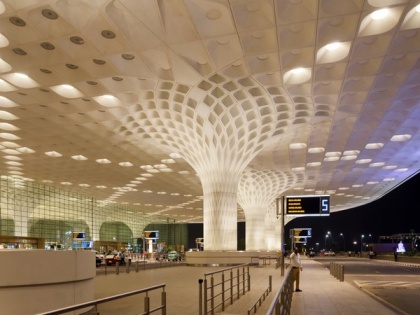Mumbai Passengers Hit by Delays After Delhi ATC Glitch; CSMIA Issues Advisory
By Lokmat Times Desk | Updated: November 7, 2025 17:35 IST2025-11-07T17:35:05+5:302025-11-07T17:35:05+5:30
Flight delays extended from Delhi to Mumbai on Friday after disruptions were reported at Indira Gandhi International Airport (IGIA). ...

Mumbai Passengers Hit by Delays After Delhi ATC Glitch; CSMIA Issues Advisory
Flight delays extended from Delhi to Mumbai on Friday after disruptions were reported at Indira Gandhi International Airport (IGIA). Mumbai’s Chhatrapati Shivaji Maharaj International Airport (CSMIA) issued a passenger advisory stating that flight operations were affected due to a technical issue in Delhi’s Automatic Message Switching System (AMSS). This system is essential for air traffic control communications and flight planning. Authorities are currently working to repair the AMSS, and passengers have been urged to stay connected with their respective airlines for schedule updates. The Airports Authority of India (AAI) confirmed that the situation led air traffic control to partially shift to manual procedures.
Chatrapati Shivaji Maharaj International Airport, Mumbai, issues a passenger advisory following flight Operations at Mumbai Airport being affected by a technical issue impacting the Automatic Message Switching System (AMSS) at Delhi, which supports Air Traffic Control flight… pic.twitter.com/McP1jKkkLN
— ANI (@ANI) November 7, 2025
As a result of this switch to manual operations, coordination of flights slowed down, affecting not just Delhi and Mumbai but also major airports in Bengaluru, Hyderabad, and Pune. The AMSS typically provides automatic sharing of flight-related messages, and without it, processes such as flight planning, tracking, and communications require additional time. This caused a ripple effect across interconnected air travel routes, resulting in delays and possible rescheduling. Airlines began informing passengers through email, social media and SMS to anticipate potential waiting times at terminals until systems return to normal functioning.
The disruption actually started late Thursday, when the AMSS malfunctioned and stopped supplying data to the Auto Track System (ATS), which prepares flight plans for controllers. With automated support unavailable, controllers manually processed flight information, increasing workload and reducing the number of aircraft that could be safely managed at once. More than 300 flights at IGIA were delayed on Friday due to congestion in the airspace. Sources noted that in addition to delays, some evening flights may also face cancellations because of limited runway parking capacity as the backlog builds. Efforts to restore full operations are ongoing.
Open in app